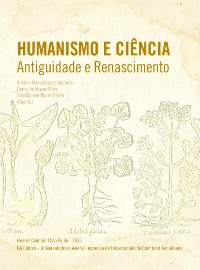Please use this identifier to cite or link to this item:
https://hdl.handle.net/10316.2/35694| DC Field | Value | Language |
|---|---|---|
| dc.contributor.author | Costa, Joana Mestre | |
| dc.contributor.author | Cardoso, Adelino | |
| dc.date.accessioned | 2015-01-29T14:08:50Z | |
| dc.date.accessioned | 2020-09-09T17:00:11Z | - |
| dc.date.available | 2015-01-29T14:08:50Z | |
| dc.date.available | 2020-09-09T17:00:11Z | - |
| dc.date.issued | 2015 | - |
| dc.identifier.isbn | 978-989-26-0941-6 (PDF) | |
| dc.identifier.uri | https://hdl.handle.net/10316.2/35694 | - |
| dc.description.abstract | Since Classical Antiquity, lovers arouse the ingenuity of the poetic work, the curiosity of the philosophical thought and even the interest of the medical review. The truth is that, handed over to an immoderate feeling, those who love do not always show themselves capable of reconciling reason and senses, eventually being dominated by an insane mind. It is precisely on this motive that ponders Catullus, in his carmen 85, or, prior to him, Anacreon, in the fragment 46, although being the Latin poet’s approach a more idiosyncratic consideration. Indeed, with the same excruciation is busied Filipe Montalto, while lingering over “Lovesickness”, in the Fifth Treatise of his Archipathologia from 1614. Of course that it is medical the look of Montalto, and this is one among eighteen treatises seeking the classification of neuropsychiatric affections. Thus, approximating the other illnesses listed, also regarding the insanity of lovers, are the causes, symptoms and treatment for the disease investigated and established. Are these ontologies and idiosyncrasies of the Amantes, especially the conceivable under the light of the Archipathologia of Filipe Montalto, that this study intends to explore. | eng |
| dc.description.abstract | Desde a Antiguidade Clássica, despertam os amantes o engenho do labor poético, a curiosidade do pensamento filosófico e, mesmo, o interesse da análise médica. A verdade é que, entregues a um imoderado sentimento, aqueles que amam nem sempre se mostram capazes de conciliar a razão e os sentidos, acabando por se deixar dominar por um espírito insano. É, precisamente, sobre este motivo que reflete Catulo, no seu carme 85, ou, antes dele, Anacreonte, no fragmento 46, conquanto se acerque já o poeta latino de uma apreciação mais idiossincrática. Com efeito, da mesma excruciação se ocupa Filipe Montalto, ao deter-se, no Tratado Quinto da sua Archipathologia datada de 1614, sobre a “Insânia dos Amantes”. Evidentemente que é médico o olhar de Montalto, e que este é um entre dezoito tratados que procuram a classificação das afeções neuropsiquiátricas. Assim, à semelhança das demais doenças elencadas, também no que à insânia dos amantes diz respeito, se investigam e procuram estabelecer as causas, a sintomatologia e uma terapêutica para a enfermidade. São estas ontologias e idiossincrasias dos Amantes, sobretudo as possíveis à luz da Archipathologia de Filipe Montalto, que pretende este trabalho explorar | por |
| dc.language.iso | por | - |
| dc.publisher | UA Editora - Universidade de Aveiro | por |
| dc.publisher | Imprensa da Universidade de Coimbra | por |
| dc.publisher | Annablume | por |
| dc.relation.ispartof | http://hdl.handle.net/10316.2/35685 | por |
| dc.rights | open access | - |
| dc.subject | Lovesickness | eng |
| dc.subject | Literary topos | eng |
| dc.subject | Neuropsychiatric affection | eng |
| dc.subject | Archipathologia | eng |
| dc.subject | Filipe Montalto | eng |
| dc.subject | Insânia dos Amantes | por |
| dc.subject | Topos literário | por |
| dc.subject | Afeção neuropsiquiátrica | por |
| dc.subject | Archipathologia | por |
| dc.subject | Filipe Montalto | por |
| dc.title | Ontologias e idiossincrasias dos Amantes, à luz da Archipathologia de Filipe Montalto | por |
| dc.type | bookPart | por |
| uc.publication.firstPage | 211 | - |
| uc.publication.lastPage | 225 | - |
| uc.publication.location | Coimbra | por |
| uc.publication.location | São Paulo | por |
| uc.publication.location | Aveiro | por |
| dc.identifier.doi | 10.14195/978-989-26-0941-6_8 | - |
| uc.publication.digCollection | PB | por |
| uc.publication.orderno | 9 | - |
| uc.publication.area | Artes e Humanidades | por |
| uc.publication.bookTitle | Humanismo e Ciência: Antiguidade e Renascimento | - |
| uc.publication.manifest | https://dl.uc.pt/json/iiif/10316.2/35694/209895/manifest?manifest=/json/iiif/10316.2/35694/209895/manifest | - |
| uc.publication.thumbnail | https://dl.uc.pt/retrieve/11162102 | - |
| uc.publication.parentItemId | 54470 | - |
| uc.itemId | 70016 | - |
| item.grantfulltext | open | - |
| item.fulltext | With Fulltext | - |
| Appears in Collections: | Humanismo e Ciência: Antiguidade e Renascimento | |
Files in This Item:
| File | Description | Size | Format | |
|---|---|---|---|---|
| humanismo_e_ciencia_-_1.8.pdf | 5.73 MB | Adobe PDF |  |
Items in DSpace are protected by copyright, with all rights reserved, unless otherwise indicated.
